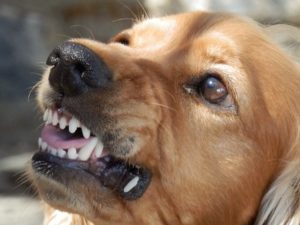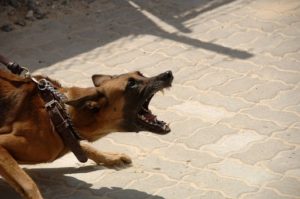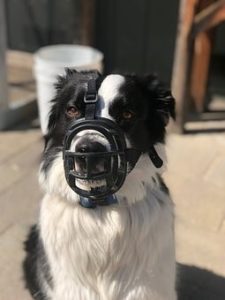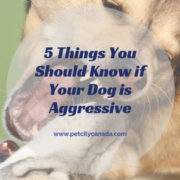5 Things You Should Know if Your Dog is Aggressive
The main causes of aggression in dogs are when they are protecting themselves or their pups from a threat, defending their territory/food, or protecting their owners. In some cases, aggression is a sign that your dog needs more exercise. There are precautions, you as the dog owner, can take to prevent injury.
1.Identify the signs your dog shows when becoming aggressive:
- Makes a low, guttural, longer sound as a warning.
- Bares its teeth and curl up its cheeks.
- Squats slightly lower to the ground.
- Makes growling, snarling, and/or snapping sounds.
- Lunges forward towards another animal or person.
- Nips, bites, punctures skin causing injury.
2. Know what triggered the aggressive response:
- Did something hurt your dog?
- Was your dog injured or in pain before the aggressive behaviour?
- Were you, their pups, or themselves in any danger?
- Where were you when the aggressive behaviour started?
- Have they had enough exercise today?
3. Be aware of what influences dog aggression:
- Some breeds have a common trait of aggression, but not all dogs of that breed will automatically be aggressive. Some dog breeds that have aggressive tendencies are: American Pit Bull Terrier, Bull Mastiff, Rottweiler, German Shepherd, Dobermann Pinscher, Cane Corso.
- How a dog is treated will affect their personality and disposition.
- If a dog has had good socialization with other animals and people beforehand.
- Health concerns: if a dog is deaf or has poor eye sight they may startle and snap or bite, or if they are pain or discomfort.
4. Know what you can do to protect other animals and people from getting hurt:
- A good place to start is enrolling your dog in an obedience training program.
- Talk with your Veterinarian about causes and management of aggressive behaviours. You need to rule out any medical causes that are a factor.
- Use a muzzle when your dog is in contact with other people or animals if aggression is a concern.
- Put your dog in a crate or separate room before company arrives.
- Visit parks that aren’t popular with other dog walkers.
- Be very aware when small children want to ‘play’ with your dog!
5. Know what you should do if your dog becomes aggressive:
- Have a first aid kit with you either in your vehicle or backpack and an old towel or blanket, in case an animal is bleeding.
- Superficial and Puncture wounds need to be cleansed, apply a topical antibiotic ointment, and bandage. Deeper wounds will bleed (which carry out germs), monitor amount of blood loss,
and seek medical attention. - Offer to pay for any medical expenses that are due to the injury.
- Being at the receiving end of a dog’s aggressive behaviour is frightening. If your dog ever displays unwanted behaviour seek advice from a qualified professional immediately before serious injury occurs.
If you are concerned your pup isn’t getting enough exercise and is spending long days home alone, please contact us to learn more about the services we have that can support you!


